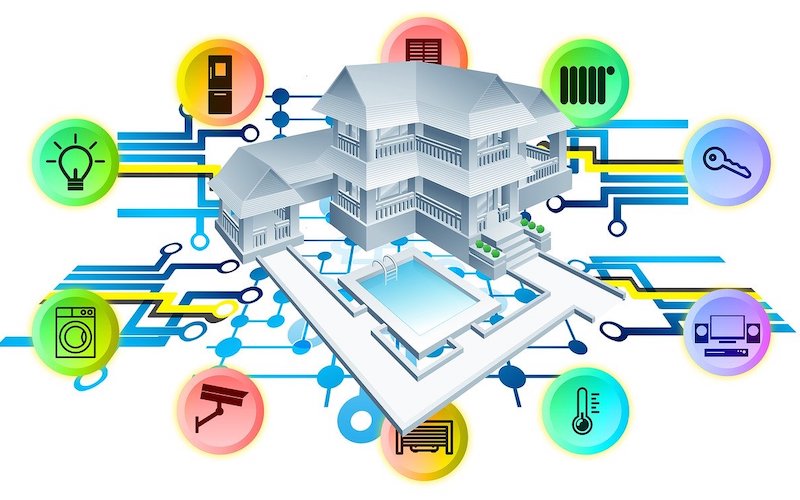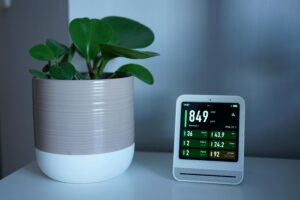We’re now one step closer to having fully connected homes. Late last year, Google, Apple, and Amazon announced they’re working together on a project called “Connected Home over IP” (CHIP). CHIP aims to create a new royalty-free communication standard for smart devices.
Right now, there is no universal standard for these kinds of communication. Different devices run on different protocols, so you could buy a handful of IoT gadgets that won’t work with each other. You might’ve noticed that some of your apps work with Chromecast or Roku, but others don’t.
Almost all IoT devices sell the idea of a connected home. They let you imagine a world where you can control everything from your TV to your coffee maker to your lights with your phone or voice. This dream is technically possible right now, but it’s less convenient than you might’ve imagined.
You can buy all sorts of connected devices, from smart lamps to smart locks, but you have to use different apps for many of these gadgets, making the whole system less unified than you’d like. Maybe you can control half of your devices with Alexa, but you have to use Google Assistant for the rest.
An Unlikely Collaboration
Amazon, Apple, and Google, three of the Big Five in tech, are all key players in the smart home game. Through Alexa, Google Assistant, or Siri, you can control pretty much any smart device on the market. The only problem is that you can’t control them all with just one of those services. Not at the moment, anyway.
You can see why these companies wouldn’t be compatible with one another. Exclusivity means that to control everything from one source, you’ll most likely have to buy products from these companies or their partners. But thankfully for the consumer, these devices won’t be exclusive for long.
By joining forces, the three big names in smart homes are pushing towards a more connected future. CHIP’s new standard for IoT connectivity will allow you to use whatever devices you want with whichever smart assistant you prefer. You’ll no longer have to worry if your gadgets are compatible with your phone or smart hub.
Maybe you found a smart security system you like, and you prefer to use Alexa. Previously, that new security system may not work with Alexa, so you’d either have to find a new one or use an assistant you don’t like as much. With a universal standard like the one CHIP is developing, that wouldn’t be a problem.
The Zigbee Alliance
There’s a fourth member of this collaboration that you may not recognize, but might be the driving force behind it. This member, the Zigbee Alliance, runs much of the IoT today. It’s a group of companies that all use the same network protocol, called Zigbee.
The Zigbee Alliance includes recognizable brands like Comcast, IKEA, and Samsung. By joining this alliance, companies agree to use Zigbee to power the connectivity of their IoT devices. The development of CHIP is taking this alliance one step further by introducing the “Big Three.”
The Big Three with the Zigbee Alliance, under the title of The Working Group, are now at work creating a new wireless protocol. Instead of using the existing Zigbee system, the group is developing a new, more advanced networking technology.
The Future of Home Automation
So what does all this mean for you? In short, you can finally have a truly connected home. When the Working Group’s protocol rolls out, you’ll be able to use virtually any device with any system.
There are many benefits to home automation. Apart from convenience, having a connected home can offer you advanced security and even lower your insurance premiums. When everything works together, everything works better.
Although the group will produce an entirely new protocol, they stated that it will still support old devices. That way, you won’t have to go and buy brand new gadgets to have a cohesive smart home.
The Working Group says this new protocol should begin to roll out later this year. With the global smart home market poised to surpass $140 billion by 2023, it seems this collaboration came at the right time. The Big Three will continue to compete for you to buy their products, but you’ll no longer have to worry about their compatibility.











